- The group remains active across the region and took credit for the deadly bombing yesterday of a memorial in Iran to Maj. Gen. Qassem Soleimani.
- The former Islamic Revolutionary Guards Corps leader was killed four years ago in a U.S. drone strike in Baghdad.
- It was seen by many in Iraq as a gross disregard for Iraqi sovereignty or worse, and drew extreme ire of those tied to Shiite militias.
On Dec. 8. Austin spoke with Sudani and advised him that Harakat al-Nujaba and Kata’ib Hizbollah "are responsible for most of the attacks against Coalition personnel."
Laurie Mylroie5 Hours ago
WASHINGTON DC, United States (Kurdistan24) – At the Pentagon and State Department, officials confirmed on Thursday that the U.S. had responded to repeated attacks from pro-Iranian militias in Iraq with a drone attack that had targeted high-ranking members of Harakat al-Nujaba.
- The group was designated by the U.S. as a terrorist organization in 2019, and already eleven years before that, its leader, Akram Abbas al-Kabi, was designated as a terrorist.
- That was Sept. 2008, when George W. Bush was president.
- Over 15 years have passed, and the group, which has particularly close ties to Iran, has not only survived, but maintains the capability to attack U.S. forces.
- Jawari, whom Ryder described as “a Harakat al-Nujaba leader,” was “actively involved in planning and carrying out attacks against American personnel.”
- Ryder described the U.S. strike as “self-defense” and stressed that no civilians were injured, although a second person, “an associate” of Jawari, was also killed.
Indeed, Harakat al-Nujaba had warning from the Pentagon, but it may well have disregarded the subtle signal, given the Biden administration’s previous inaction.
- In early December, Austin spoke with Sudani. The U.S. read-out of their discussion identified Harakat al-Nujaba, along with Kata’ib Hizbollah, as the two militias most responsible for attacking U.S. forces.
- Indeed, pro-Iranian militias in Iraq and Syria have targeted troops from the anti-ISIS Coalition over 100 times since mid-October, using the war in Gaza as a pretext for the accelerated rate of their assaults.
But the attacks have met a minimal U.S. response, prompting criticism from various quarters. That includes Amb. Jeffrey in his interview with Kurdistan 24, cited above.
- It also includes The Wall Street Journal, which, on Dec. 26, published an editorial entitled, “Biden Endangers U.S. Troops,” and which noted, “Three more American service members are hurt, as U.S. bases became enemy drone catchers.”
- Both of those strikes were against Kata’ib Hizbollah, even as the Pentagon, by the time of the second attack, had sent Harakat al-Nujaba a subtle warning.
In two very limited respects, Thursday’s strike did mark an increase in the robustness of the Biden administration’s response to the militia attacks.
It was the first U.S. retaliatory strike in Baghdad itself. It was also the first attack that targeted Harakat al-Nujaba. . .
And that is pretty much what the U.S. did on Thursday.
Drone strikes Harir Air Base, damages unknown: CTD
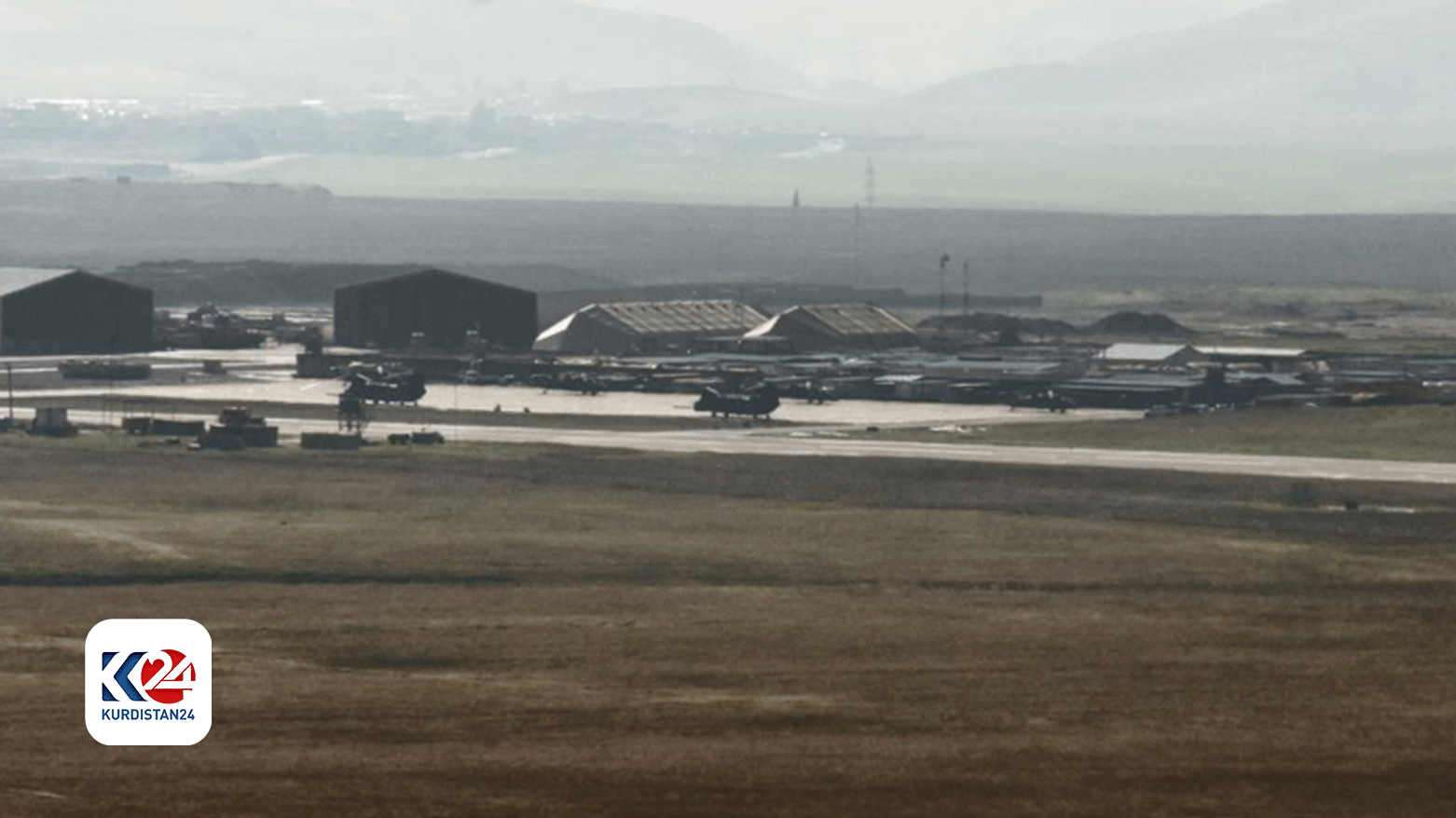
The base was formerly used by the Global Coalition against ISIS.
- Earlier on Jan. 2, an attack drone was shot down at the Erbil Air Base adjacent to the Kurdistan Region’s Erbil International Airport.
- Moreover, on New Year’s Eve, at least two attack drones struck a Peshmerga base in the Pirmam District of Erbil province, with minor damage to infrastructure reported.
- Furthermore, at least three US service members were wounded in a drone strike on the base in late December, prompting a US retaliatory strike on an Iranian-backed militia group, killing at least a militia member and wounding 18 others.
Since then, the American forces both in Iraq and Syria have come under more than 100 attacks.
U.S. Drone Strike Kills Iranian-Aligned Militia Leader In Baghdad
This marks the first U.S. airstrike in Baghdad since Iranian-backed militias began attacking U.S. forces in the wake of the Israel-Hamas war.
U.S. military officials have acknowledged responsibility for a drone strike Thursday in Baghdad that killed a top leader of an Iranian-backed militia group and several others.
“The United States is continuing to take action to protect our forces in Iraq and Syria by addressing the threats they face,” a U.S. defense official told The War Zone when asked to confirm American involvement in the attack that killed Mushtaq Taleb al-Saidi, deputy head of operations for an Iranian-backed militia working with the Iraqi government.
- That includes one Nov. 21 south of Baghdad and several across Iraq on Dec. 25 that "likely killed a number of Kataib Hezbollah militants" after they attacked a U.S. facility in Erbil, according to CENTCOM.
- However, this is the first such strike in the Iraqi capital itself and a seeming escalation of the brewing proxy fight between the U.S. and Iranian-backed militias.
Iraqi officials are furious, likening the strike to a terrorist attack.
“In a blatant aggression and violation of Iraq's sovereignty and security, a drone conducted an act akin to terrorist activities by targeting one of the security headquarters in the capital, Baghdad, today,” said Iraqi Special Forces Maj. Gen. Yehia Rasool, the Iraqi Defense Ministry spokesman. “This act resulted in casualties and is unequivocally condemned. The Iraqi Armed Forces hold the Global Coalition Forces responsible for this unwarranted attack on an Iraqi security entity that is operating within the powers authorized by the Commander-in-Chief of the Armed Forces.”
The attack “undermines the previously established understandings between the Iraqi Armed Forces and the Global Coalition Forces,” Rasool continued. “We view this action as a dangerous escalation and assault on Iraq, diverging from the spirit and the text of the mandate and the mission for which the Global Coalition was established in Iraq. God's Mercy for the martyrs and speedy recovery for the wounded of this attack.”
The Popular Mobilization Forces, a coalition of militias that is nominally under at least some degree of control of the Iraqi military, announced in a statement that al-Saidi, its deputy head of operations in Baghdad also known as “Abu Taqwa”, was killed “as a result of brutal American aggression,” The Associated Press reported.
One of the officials told the AP that Saidi was driving into the garage of the headquarters affiliated with the al-Nujaba militia, one of the members of the PMF, along with another militia official when the car was hit, killing both.
The drone fired at least two weapons at a building in eastern Baghdad used by al-Nujaba, according to Reuters, which reported that the strike killed four people and wounded six others.
- A loose-knit group of Iranian-backed militias calling itself the Islamic Resistance in Iraq has claimed credit for scores of attacks on U.S. facilities in Iraq and Syria.
- A U.S. defense official told The War Zone that 74 U.S. troops have been injured in 119 such attacks.
- One of those troops was seriously injured Dec. 25 during the attack in Erbil, the official added. Our colleagues at Task & Purpose profiled that soldier in a story you can read here.
As Reuters noted, Iraqi Prime Minister Mohammed Shia al-Sudan has limited control over the Iranian-backed militias in Iraq, which he needed to help win power a year ago and now form a powerful bloc in his government. This attack will likely add pressure to efforts to oust the U.S., which still has about 2,500 troops in Iraq.
How it affects the ongoing U.S.-led fight against ISIS remains to be seen. The group remains active across the region and took credit for the deadly bombing yesterday of a memorial in Iran to Maj. Gen. Qassem Soleimani.
The former Islamic Revolutionary Guards Corps leader was killed four years ago in a U.S. drone strike in Baghdad. The fact that today's U.S. strike, which was glaringly similar to the one that killed Soleimani, comes just a day after the anniversary of that attack is also of note. It was seen by many in Iraq as a gross disregard for Iraqi sovereignty or worse, and drew extreme ire of those tied to Shiite militias.
The U.S. would have been fully aware of these parallels and still decided the strike was worth executing, regardless of the political and security fallout.
Update 1:30 PM Eastern -
A U.S. defense official provided additional details about this strike.
“On January 4, 2023 at approximately 12:00 PM (Iraq time), U.S. forces took necessary and proportionate action against Mushtaq Jawad Kazim al-Jawari (a.k.a Abu-Taqwa), who was a Harakat-al-Nujaba leader. Abu-Taqwa was actively involved in planning and carrying out attacks against American personnel. The strike also killed one other Harakat-al-Nujaba member. This strike was taken in self-defense. No civilians were harmed. No infrastructure or facilities were struck.”
Contact the author: howard@thewarzone.com
___________________________________________________________________________________
_____________________________________________________________________________________
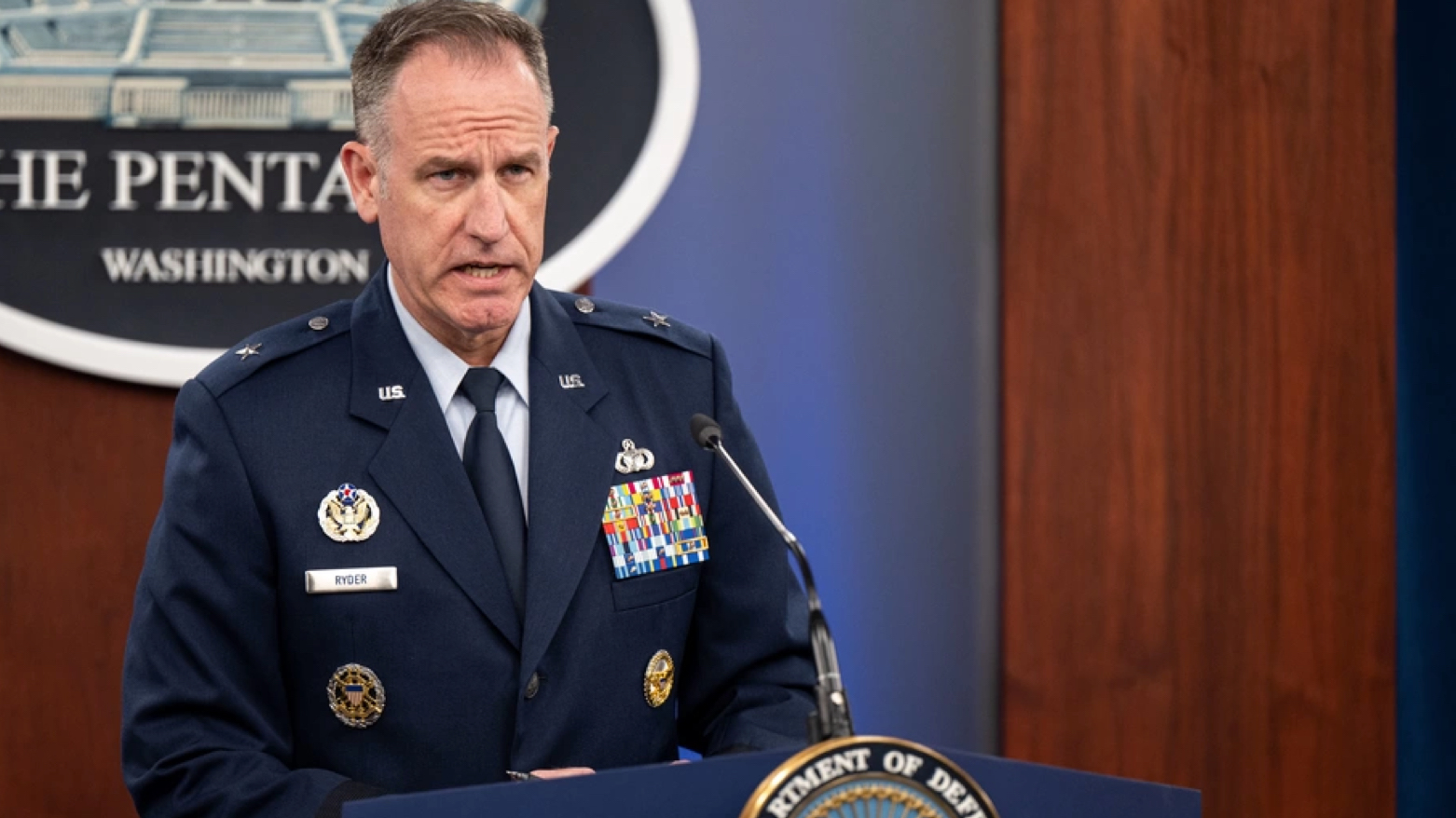

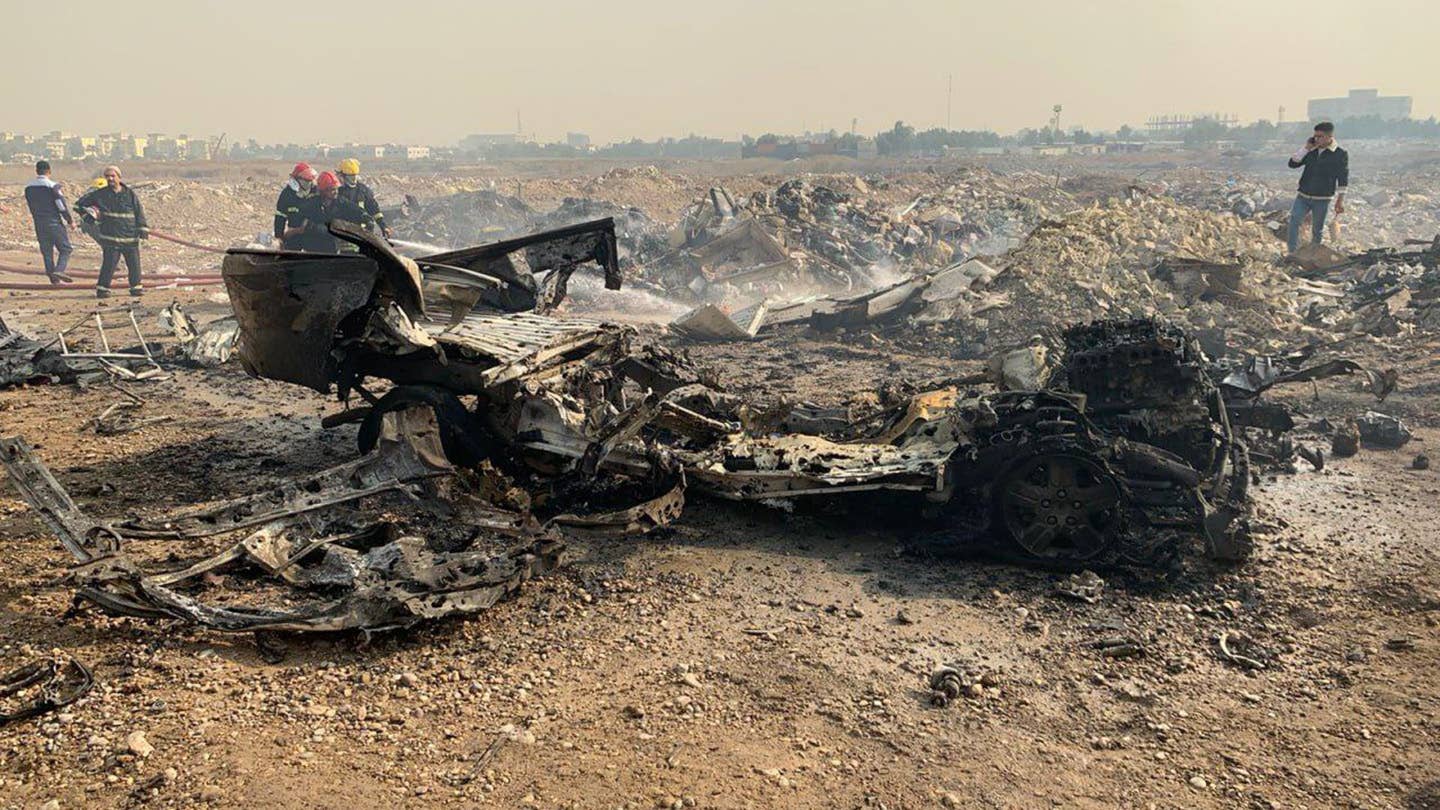
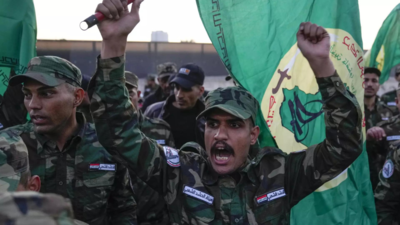

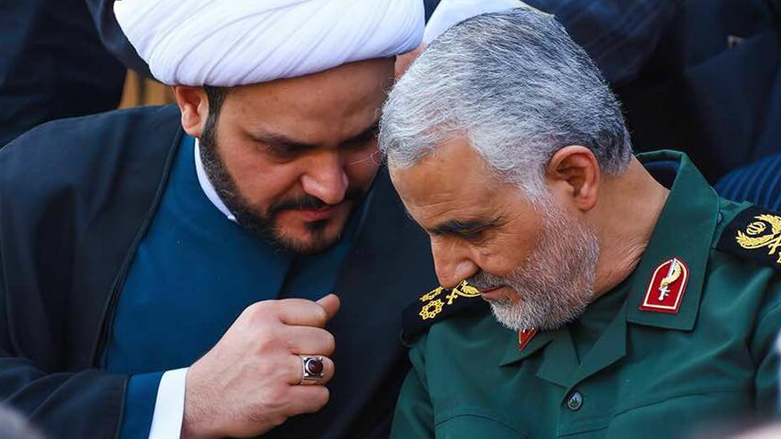
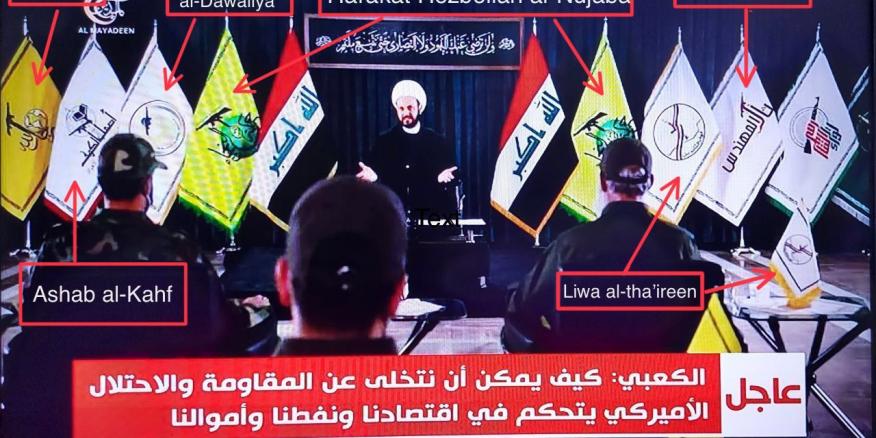


No comments:
Post a Comment